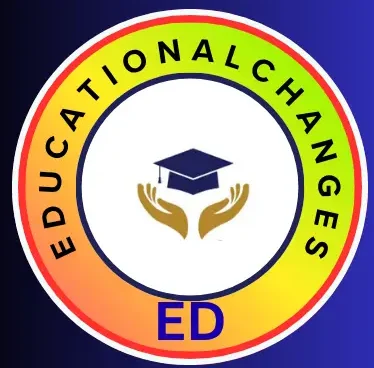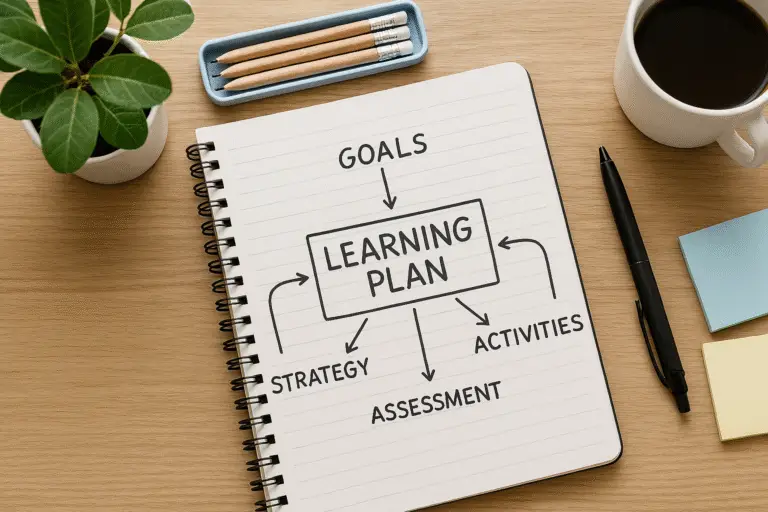
Bonus questions for exams represent one of the most versatile and powerful tools in modern education, offering students opportunities for extra credit while providing educators with innovative ways to assess learning, reduce test anxiety, and create more inclusive classroom environments. Whether you’re a teacher designing your next assessment, a student wondering how to approach these optional challenges, or an educational administrator seeking to improve testing outcomes, understanding the strategic implementation of bonus questions can significantly impact academic success.
This comprehensive guide explores everything from the psychological benefits of humor-based bonus prompts to the research-backed advantages of values-affirmation questions in higher education. You’ll discover practical implementation strategies, real-world examples from K-12 classrooms to competitive academic settings, and evidence-based approaches that can transform traditional testing into more engaging, equitable, and effective learning experiences.
What Are Bonus Questions?
Definition and Core Concepts
Bonus questions are optional assessment items that provide students with opportunities to earn additional points beyond the standard scoring structure of an exam. Unlike core exam questions that directly measure required learning objectives, bonus questions typically offer creative, challenging, or alternative pathways for students to demonstrate knowledge, skills, or engagement with course material.
These supplementary items serve multiple pedagogical purposes: they can differentiate between high-achieving students, provide safety nets for those who struggle with traditional question formats, and create opportunities for creative expression within formal assessment frameworks. The scoring mechanism usually allows students to exceed 100% on an exam or recover points lost on core questions, making them particularly valuable for motivation and grade improvement.
The distinction between bonus and core questions lies primarily in their optional nature and scoring impact. While core questions assess essential learning outcomes and contribute to baseline grade calculations, bonus questions function as enhancement opportunities that can elevate performance without penalizing students who choose not to attempt them.
Historical Context and Educational Evolution
The concept of bonus questions in educational assessments emerged from early 20th-century progressive education movements that emphasized student engagement and differentiated instruction. Initially appearing in informal classroom quizzes, these optional items gained prominence as educators recognized their potential to address diverse learning styles and reduce test anxiety.
The evolution of bonus questions parallels broader changes in educational philosophy, moving from purely academic challenges to more holistic approaches that consider student well-being, cultural responsiveness, and equity concerns. Modern implementations often incorporate elements from competitive academic formats like Quiz Bowl and National Science Bowl, where structured bonus rounds require collaborative problem-solving and multi-part responses.
Contemporary bonus question design reflects increased understanding of stereotype threat, growth mindset principles, and inclusive pedagogy. Today’s educators use these tools not just for academic differentiation but as vehicles for building classroom community, validating diverse student experiences, and creating more psychologically safe testing environments.
Types and Categories of Bonus Questions
Format-Based Classifications
Multiple-Choice Bonus Items
Multiple-choice bonus questions typically present more complex scenarios than standard exam items, often requiring synthesis of information across multiple course modules or application of concepts to novel situations. These questions might include “all of the above” options that require comprehensive understanding, or reverse-logic items where students must identify incorrect statements among mostly correct choices.
Effective multiple-choice bonus items often incorporate real-world applications, asking students to predict outcomes, analyze case studies, or evaluate conflicting information. The key advantage lies in their objective scoring and ability to assess higher-order thinking within familiar formats that don’t intimidate students with entirely new question structures.
Short-Answer and Essay Formats
Open-ended bonus questions provide opportunities for students to demonstrate creativity, critical thinking, and personal connection to course material. These might include reflective prompts asking students to connect course concepts to current events, design solutions to hypothetical problems, or explain complex processes in their own words.
Essay-style bonus questions particularly excel at assessing synthesis and evaluation skills from Bloom’s taxonomy. They allow students to showcase writing abilities, demonstrate depth of understanding, and make connections that multiple-choice formats cannot capture effectively.
Visual and Creative Prompts
Drawing-based bonus questions have gained popularity for their stress-relief properties and ability to engage different learning modalities. Examples include asking students to illustrate scientific processes, create concept maps, or draw diagrams that explain mathematical relationships.
These creative formats serve dual purposes: they provide alternative assessment methods for visual learners while offering psychological benefits through stress reduction and positive emotional engagement with testing situations.
Contextual and Purpose-Based Categories
Affirmation and Humanizing Questions
Values-affirmation bonus questions ask students to reflect on personal strengths, interests, or meaningful experiences related to course content. Research from educational psychology demonstrates that these prompts can significantly reduce stereotype threat and improve performance among underrepresented student groups.
Examples include asking students to describe their favorite mathematical concept and explain why it resonates with them, or to share how course material connects to their personal goals or community experiences. These questions humanize the testing experience while providing valuable insights into student motivation and engagement.
Humor-Based and Pop Culture References
Humorous bonus questions use wordplay, riddles, or contemporary cultural references to create positive emotional experiences during testing. While these can effectively reduce anxiety and improve student-teacher rapport, they require careful consideration of cultural context and potential bias toward students from specific backgrounds.
Successful humor-based questions often rely on universal experiences or course-specific inside jokes rather than external cultural knowledge. Examples might include puns related to scientific concepts or lighthearted questions about course material that demonstrate understanding through comedic application.
Quiz Bowl and Competitive Formats
Multi-part bonus questions borrowed from academic competition formats challenge high-achieving students with layered complexity. These typically follow “30-20-10” structures where each part provides additional clues, or list-based bonuses requiring students to identify multiple examples within specific categories.
Competitive-style bonuses excel at differentiating among top performers while maintaining engagement through game-like elements. They often incorporate visual aids, time constraints, and collaborative elements when used in team-based classroom activities.
Benefits and Strategic Advantages
Student-Centered Benefits
Academic Performance Enhancement
Bonus questions provide multiple pathways for students to demonstrate mastery and recover from mistakes on core exam items. This safety net effect can significantly impact final grades, particularly for students who understand material well but struggle with test-taking anxiety or time management during high-stakes assessments.
The psychological impact extends beyond mere point accumulation. Students report increased motivation to engage deeply with course material when they know creative or challenging bonus opportunities await. This enhanced engagement often translates to improved performance on both bonus items and core exam questions.
Stress Reduction and Emotional Well-being
Creative and humorous bonus questions serve as emotional reset buttons during intense testing situations. Drawing prompts, in particular, activate different neural pathways and can interrupt anxiety cycles that might otherwise spiral during challenging exams.
The optional nature of bonus questions also reduces performance pressure. Students can approach these items with curiosity rather than fear, creating positive associations with assessment that can improve overall testing experiences and reduce math or science anxiety in applicable courses.
Inclusivity and Cultural Responsiveness
Well-designed bonus questions can validate diverse student experiences and knowledge bases that traditional assessments might overlook. Values-affirmation prompts specifically address stereotype threat by allowing students to connect personal identities with academic content in meaningful ways.
When planning an annual learning plan, educators should consider how bonus questions can support different learning styles, cultural backgrounds, and personal interests throughout the academic year. This inclusive approach helps create classroom environments where all students feel valued and capable of success.
Instructor and Institutional Advantages
Enhanced Student-Teacher Relationships
Bonus questions provide windows into student personalities, interests, and creative thinking that traditional assessments cannot offer. Teachers often discover unexpected talents, personal connections to material, or creative insights that inform future instructional decisions and relationship-building opportunities.
The humanizing effect works both directions—students perceive teachers who include thoughtful bonus questions as more approachable, creative, and invested in student success beyond mere grade calculations.
Differentiation and Advanced Challenge
High-achieving students often complete core exam material quickly, leaving significant time unused. Challenging bonus questions provide appropriate extensions that prevent boredom while allowing these students to showcase advanced understanding or creative applications of course concepts.
This differentiation approach supports gifted education principles within mainstream classroom settings, ensuring that all students encounter appropriate levels of challenge regardless of their baseline performance on standard curriculum objectives.
Grading Flexibility and Assessment Innovation
Bonus questions provide grading cushions that allow instructors to maintain high standards on core material while offering multiple pathways to success. This flexibility proves particularly valuable when introducing challenging new concepts or when external factors might impact student performance.
The data gathered from bonus question responses also provides valuable formative assessment information, revealing student misconceptions, interests, and areas for future instructional focus.
Potential Challenges and Mitigation Strategies
Cultural Bias and Accessibility Concerns
Humor-based and pop culture bonus questions risk advantaging students from specific cultural backgrounds while inadvertently excluding others. Careful question design must consider diverse student experiences and avoid references that require specialized cultural knowledge unrelated to course objectives.
Mitigation strategies include pilot-testing questions with diverse student groups, providing multiple bonus options with different cultural touchpoints, and focusing humor on course-specific rather than external cultural content.
Time Management and Strategic Thinking
Students sometimes spend excessive time on bonus questions at the expense of core exam performance, leading to counterproductive outcomes. Clear instructions about time allocation and strategic advice about when to attempt bonus items can help students make informed decisions.
Some instructors implement threshold requirements, such as completing all core questions before bonus items become available, or provide specific time recommendations for bonus question attempts.
Psychometric and Fairness Considerations
Bonus questions can complicate statistical analyses of exam performance and may introduce sources of measurement error that affect reliability calculations. Additionally, the optional nature means students with better test-taking strategies or time management skills may disproportionately benefit.
Addressing these concerns requires transparent communication about bonus question policies, consistent implementation across all students, and careful consideration of how bonus points factor into final grade calculations and course outcome assessments.
Designing Effective Bonus Questions
Alignment with Educational Objectives
Curriculum Integration Strategies
Effective bonus questions should complement rather than distract from core learning objectives. The best implementations create opportunities for students to synthesize information across multiple course units, apply concepts to novel situations, or demonstrate mastery through alternative modalities while maintaining clear connections to essential learning outcomes.
Consider designing bonus questions that require integration of recent material with foundational concepts from earlier in the course. This approach reinforces key learning while challenging students to make meaningful connections that demonstrate comprehensive understanding.
Bloom’s Taxonomy Applications
Higher-order thinking skills—analysis, synthesis, and evaluation—provide excellent frameworks for bonus question development. Rather than simply testing recall or comprehension, effective bonus items challenge students to compare and contrast concepts, design solutions to hypothetical problems, or evaluate the effectiveness of different approaches to course-related challenges.
For example, instead of asking students to define photosynthesis, a bonus question might ask them to predict how climate change factors would affect photosynthetic rates in different ecosystems and justify their reasoning using course concepts.
Balancing Challenge and Accessibility
Scaffolding and Support Structures
Multi-part bonus questions can provide scaffolding that supports students with varying ability levels. Beginning with more accessible components and progressing to challenging applications allows partial credit opportunities while maintaining high-level challenge for advanced students.
Consider implementing hint systems or progressive disclosure formats where students can access additional support in exchange for reduced point values, maintaining challenge while providing multiple pathways to success.
Clear Instructions and Expectations
Ambiguous bonus questions frustrate students and may inadvertently advantage those with better test-taking strategies rather than content knowledge. Specific rubrics, clear point allocations, and explicit expectations help ensure that bonus questions assess intended skills rather than ability to interpret unclear instructions.
Provide examples of excellent responses when appropriate, particularly for creative or open-ended bonus formats where students might feel uncertain about expectations or evaluation criteria.
Implementation Timing and Strategy
Optimal Placement and Pacing
Research suggests that students perform better on bonus questions when they complete core exam material first, reducing anxiety about time management and ensuring that optional items don’t interfere with essential assessment objectives.
Consider placing bonus questions at the end of exams with clear instructions about recommended time allocation, or implementing digital formats that unlock bonus content only after core sections are submitted.
Point Value and Weighting Considerations
Bonus point values should be significant enough to motivate effort while avoiding situations where bonus performance overshadows core competency demonstration. Many successful implementations limit bonus points to 5-10% of total exam scores, providing meaningful impact without undermining primary assessment objectives.
Transparent communication about how bonus points factor into final grades helps students make informed decisions about effort allocation and reduces anxiety about fairness or unexpected grade impacts.
Implementation Across Educational Contexts
K-12 Classroom Applications
Elementary and Middle School Adaptations
Younger students often respond enthusiastically to creative and humorous bonus questions that provide outlets for imagination within academic contexts. Drawing prompts, riddles related to course content, and questions that allow personal expression can significantly enhance student engagement with formal assessments.
Teachers report success with bonus questions that ask students to create illustrations of story characters, design inventions that solve math word problems, or write alternative endings to historical events. These approaches support multiple intelligence theory applications while maintaining academic rigor.
High School Sophistication
Advanced secondary students benefit from bonus questions that mirror college-level expectations, including research-based prompts, cross-curricular connections, and real-world applications that prepare them for higher education assessment formats.
Effective high school bonus questions might ask students to connect literature themes to contemporary social issues, design experiments to test scientific hypotheses, or analyze primary source documents using historical thinking skills developed throughout the course.
Higher Education Strategies
Values-Affirmation Research Applications
College-level bonus questions increasingly incorporate values-affirmation principles that research demonstrates can reduce stereotype threat and improve performance among underrepresented student populations. These prompts ask students to reflect on personal values, describe meaningful experiences, or connect course material to individual goals and community contexts.
Implementation requires sensitivity to diverse student backgrounds and careful attention to creating inclusive prompts that validate various life experiences and cultural perspectives. The goal involves helping students see themselves as capable scholars whose identities enhance rather than hinder academic success.
Graduate and Professional Program Adaptations
Advanced academic programs often use bonus questions to simulate professional scenarios, assess leadership potential, or evaluate creative problem-solving abilities that standardized testing cannot measure effectively. These might include case study analyses, ethical dilemma responses, or innovation challenges related to field-specific applications.
The youth education series approach to bonus questions in higher education emphasizes developmental progression, where question complexity and expectations increase systematically as students advance through program requirements and demonstrate growing expertise.
Competitive Academic Settings
Quiz Bowl and Academic Competition Integration
Team-based academic competitions have refined bonus question formats through decades of tournament experience, creating structured approaches that classroom educators can adapt for individual or small group settings.
Traditional quiz bowl bonus rounds feature three-part questions with decreasing point values, encouraging teams to use partial knowledge strategically while maintaining engagement even when complete answers prove elusive. Visual bonus formats incorporate diagrams, charts, or multimedia elements that assess information processing and collaborative analysis skills.
National Science Bowl Applications
Science competition formats often combine individual preparation with team collaboration phases, creating bonus structures that assess both content knowledge and communication skills. Students must synthesize information quickly, explain reasoning clearly to teammates, and reach consensus under time pressure.
These collaborative bonus formats provide excellent models for classroom applications, particularly in STEM courses where professional practice requires both technical expertise and effective teamwork capabilities.
Real-World Examples and Case Studies
Creative Classroom Implementation Stories
Elementary Success Stories
Third-grade teacher Sarah Martinez transformed her math assessments by adding drawing bonus questions that asked students to illustrate word problems or create visual representations of mathematical concepts. Students began requesting “picture problems” and demonstrated improved engagement with challenging content.
One particularly effective prompt asked students to “draw a superhero whose power involves fractions” and explain how the character would use fractional thinking to save the day. Students created elaborate stories while demonstrating solid understanding of fraction concepts through creative applications.
Middle School Innovation Examples
Science teacher David Chen implemented pop culture bonus questions that connected course content to students’ interests while maintaining academic rigor. His climate change unit featured a bonus question asking students to design a superhero whose powers could address specific environmental challenges discussed in class.
Students researched real environmental issues, applied scientific concepts learned in class, and created detailed character profiles that demonstrated both creativity and content mastery. The assignment became so popular that students began requesting similar opportunities in other units.
High School Advanced Applications
AP History teacher Lisa Rodriguez developed bonus questions that asked students to write diary entries from historical figures’ perspectives during pivotal moments, requiring synthesis of multiple primary sources and deep understanding of historical context.
One memorable bonus asked students to imagine they were advisors to Abraham Lincoln during the Civil War and write a memo recommending strategy based on primary source evidence studied in class. Students demonstrated sophisticated historical thinking while engaging creatively with challenging content.
Higher Education Values-Affirmation Research
Smith College Implementation Study
Research conducted at Smith College demonstrated significant positive impacts when STEM courses incorporated values-affirmation bonus questions that asked students to reflect on personal interests and connections to course material.
Students who completed affirmation exercises showed reduced stereotype threat effects and improved performance on subsequent assessments. The intervention proved particularly effective for first-generation college students and those from underrepresented backgrounds in STEM fields.
The study revealed that simple prompts asking students to describe why course material mattered to them personally or how it connected to their goals created lasting positive effects on academic confidence and performance throughout the semester.
Community College Success Programs
Developmental mathematics programs at several community colleges implemented affirmation-based bonus questions designed to combat math anxiety and improve retention rates among diverse student populations.
Students responded to prompts like “Describe a time when you successfully solved a challenging problem” or “Explain how mathematical thinking appears in activities you enjoy.” These reflections helped students recognize existing problem-solving strengths and develop growth mindset approaches to mathematical learning.
Follow-up data showed improved course completion rates and increased enrollment in subsequent mathematics courses among students who regularly engaged with affirmation-based bonus opportunities.
Competitive Academic Excellence Models
National Science Bowl Success Strategies
Teams that consistently perform well in National Science Bowl competitions often credit their success to systematic bonus question preparation that emphasizes collaborative problem-solving and efficient communication strategies.
Winning teams practice bonus rounds that require rapid information synthesis, clear explanation of reasoning, and strategic decision-making about partial answers versus continued discussion. These skills transfer effectively to classroom settings where collaborative learning and peer explanation enhance individual understanding.
The visual bonus format used in science bowl competitions provides excellent models for classroom implementation, particularly for complex topics that benefit from diagram interpretation and spatial reasoning applications.
International Academic Olympiad Applications
Mathematics and science olympiad competitions feature bonus-style problems that require creative approaches to challenging scenarios, often combining multiple content areas in novel applications that assess deep understanding rather than procedural knowledge.
These competition formats demonstrate how bonus questions can effectively differentiate among high-achieving students while maintaining engagement through game-like elements and collaborative problem-solving opportunities.
Classroom adaptations of olympiad-style bonus questions help prepare students for advanced study while providing enrichment opportunities that extend beyond standard curriculum requirements.
Research Evidence and Expert Perspectives
Academic Performance Impact Studies
Quantitative Outcomes Research
Multiple studies examining bonus question implementation report average grade improvements of 3-7 percentage points when students regularly engage with well-designed bonus opportunities. These gains appear most pronounced among students who initially struggle with traditional assessment formats but demonstrate strong creative or analytical thinking skills.
Longitudinal research tracking students across multiple courses with bonus question implementations shows sustained improvements in academic confidence and willingness to attempt challenging problems, suggesting that benefits extend beyond immediate grade impacts.
Meta-analyses of extra credit research indicate that bonus questions prove most effective when they align closely with course objectives and require meaningful engagement rather than simple participation or completion.
Psychological and Motivational Benefits
Stress Reduction and Anxiety Management
Studies measuring cortisol levels and self-reported anxiety during testing situations demonstrate significant reductions when exams include creative or humorous bonus components. Students report feeling more relaxed and confident when they know stress-relief opportunities exist within formal assessments.
The psychological safety created by optional bonus questions appears to improve performance on core exam items as well, suggesting that benefits extend beyond the bonus questions themselves to overall testing experiences.
Research on drawing-based bonus questions specifically shows activation of different neural pathways that can interrupt anxiety cycles and promote more positive emotional states during challenging academic tasks.
Motivation and Engagement Enhancement
Self-determination theory research indicates that bonus questions can effectively support autonomy, competence, and relatedness needs that drive intrinsic motivation for learning. Students report increased interest in course material when they anticipate creative extension opportunities.
Growth mindset interventions often incorporate bonus question formats that emphasize effort and strategy over innate ability, helping students develop more productive approaches to academic challenges and setbacks.
Long-term tracking studies show that students who experience regular bonus question opportunities demonstrate increased willingness to attempt challenging coursework and persist through difficult academic material.
Equity and Inclusion Research Findings
Stereotype Threat Mitigation
Comprehensive research on values-affirmation interventions demonstrates significant reduction in achievement gaps when bonus questions incorporate reflection prompts that help students connect personal identities with academic success.
Studies specifically examining STEM education show that affirmation-based bonus questions can substantially improve performance and persistence among women and underrepresented minority students who might otherwise experience stereotype threat effects.
The research indicates that even brief affirmation exercises—such as writing about important personal values—can create lasting positive effects on academic performance and sense of belonging in challenging academic environments.
Cultural Responsiveness and Bias Reduction
Analysis of humor-based bonus questions reveals significant variation in student responses based on cultural background, highlighting the importance of careful question design that avoids unintentional bias toward specific cultural groups.
Research on inclusive assessment practices recommends offering multiple bonus question options with different cultural touchpoints, allowing students to choose prompts that resonate with their experiences and knowledge bases.
Studies examining visual versus text-based bonus formats show that providing multiple modality options can help address learning differences and cultural variations in communication preferences.
Current Trends and Future Directions
Technology Integration and Digital Innovation
Adaptive Bonus Question Systems
Emerging educational technology platforms increasingly incorporate adaptive algorithms that can generate personalized bonus questions based on individual student performance patterns, interests, and learning objectives. These systems analyze response patterns to core assessment items and suggest bonus challenges that target specific skill development areas.
Artificial intelligence applications in education show promise for creating bonus questions that automatically adjust difficulty levels, provide dynamic hint systems, and incorporate student interest data to generate engaging prompts that maintain appropriate challenge levels.
Virtual reality and augmented reality technologies offer new possibilities for immersive bonus question experiences, particularly in science and social studies courses where students can explore historical settings or manipulate complex scientific models as part of extended assessment activities.
Gamification and Interactive Elements
Modern learning management systems increasingly support interactive bonus question formats that incorporate elements from educational games, including point accumulation systems, achievement badges, and collaborative challenge opportunities.
Research on gamified assessment indicates that game-like bonus elements can significantly improve student engagement while maintaining academic rigor, particularly when competitive elements are balanced with collaborative and individual achievement opportunities.
Mobile-responsive bonus question designs allow students to engage with creative prompts using device capabilities like cameras, audio recording, and touch-based interaction, expanding possibilities for authentic assessment and creative expression.
Neuroscience and Learning Science Applications
Brain-Based Design Principles
Current neuroscience research on creativity and stress response informs bonus question design strategies that optimize both cognitive engagement and emotional well-being during assessment situations.
Studies examining the neuroscience of humor indicate that appropriate comedic elements in bonus questions can activate brain regions associated with creative thinking and problem-solving, potentially enhancing performance on both bonus items and subsequent core questions.
Research on the neurobiology of stereotype threat provides scientific support for values-affirmation bonus approaches, demonstrating measurable changes in brain activity patterns when students engage with identity-affirming content in academic contexts.
Memory and Retrieval Enhancement
Cognitive science research on elaborative processing suggests that bonus questions requiring personal connections or creative applications can strengthen memory consolidation for core course content through multiple encoding pathways.
Studies on the testing effect indicate that bonus questions providing additional retrieval practice opportunities can improve long-term retention of course material, particularly when bonus prompts require application or synthesis of previously learned concepts.
Research on interleaving and spacing effects supports bonus question designs that connect current material with concepts from earlier course units, promoting long-term retention and transfer of learning across contexts.
Educational Equity and Social Justice Applications
Culturally Sustaining Pedagogy Integration
Contemporary approaches to bonus question design increasingly emphasize culturally sustaining pedagogy principles that validate and build upon diverse student experiences and knowledge systems rather than simply accommodating differences.
Research on funds of knowledge theory supports bonus question approaches that invite students to draw upon family and community experiences, languages, and cultural practices as legitimate sources of academic knowledge and problem-solving strategies.
Social justice education frameworks provide guidance for developing bonus questions that help students analyze power structures, examine social inequalities, and envision positive change in their communities while demonstrating academic content mastery.
Universal Design for Learning Implementation
UDL principles increasingly influence bonus question design through multiple means of representation, engagement, and expression that support diverse learner needs and preferences within single assessment frameworks.
Research on learning differences indicates that providing choice among bonus question formats—visual, auditory, kinesthetic, collaborative, or individual—can help ensure that all students have opportunities to demonstrate strengths and interests beyond traditional testing parameters.
Accessibility considerations for students with disabilities inform bonus question designs that incorporate assistive technology compatibility, flexible timing options, and alternative format availability while maintaining academic rigor and fairness.
Practical Implementation Strategies
Getting Started: First Steps for Educators
Pilot Testing and Gradual Implementation
Successful bonus question implementation typically begins with small-scale pilot testing in low-stakes assessment situations where educators can observe student responses and refine approaches before applying them to major exams or high-stakes assessments.
Start with simple formats like drawing prompts or personal reflection questions that require minimal grading time while providing valuable insights into student personalities and creative thinking capabilities. Gather student feedback through anonymous surveys to understand which bonus types they find most engaging and helpful.
Consider collaborating with colleagues to share bonus question ideas and implementation strategies, particularly when working across different subject areas where interdisciplinary connections might create interesting synthesis opportunities for students.
Professional Development and Skill Building
Many educators benefit from professional development opportunities focused on assessment innovation, creativity in education, and inclusive pedagogy principles that inform effective bonus question design and implementation strategies.
Workshop attendance, conference presentations, and educational research reading can provide inspiration for new bonus question formats while connecting educators with research-based best practices and proven implementation approaches.
Peer observation and collaborative reflection help educators refine their bonus question facilitation skills, particularly for managing time allocation guidance and creating supportive classroom environments where students feel comfortable taking creative risks.
Scaling and Systematic Integration
Department and School-Wide Coordination
Successful bonus question programs often involve coordination across multiple educators to ensure consistency in expectations, point values, and implementation approaches that support student success throughout their academic experiences.
Professional learning communities focused on assessment innovation can help educators share successful bonus question examples, troubleshoot implementation challenges, and develop school-wide policies that support creative assessment approaches.
Administrative support proves crucial for providing resources, professional development opportunities, and policy frameworks that encourage innovative assessment practices while maintaining academic standards and accountability requirements.
Quality Assurance and Continuous Improvement
Regular review of bonus question effectiveness through student performance data, engagement metrics, and qualitative feedback helps educators refine their approaches and identify successful strategies worth sharing with colleagues.
Systematic documentation of bonus question examples, student responses, and implementation outcomes creates valuable resources for future planning and helps build institutional knowledge about effective assessment innovation practices.
Research collaboration with local universities or educational organizations can provide valuable external perspectives on bonus question effectiveness while contributing to broader understanding of innovative assessment approaches and their impacts.
Frequently Asked Questions
What exactly are bonus questions for exams?
Bonus questions are optional assessment items that provide students with opportunities to earn additional points beyond the standard exam scoring structure. Unlike required questions that directly test core learning objectives, bonus questions typically offer creative, challenging, or alternative ways for students to demonstrate knowledge and skills. They can include formats ranging from drawing prompts and humorous riddles to complex analytical problems and personal reflection exercises.
Do bonus questions always raise your score?
Bonus questions are designed as additive opportunities, meaning they typically can only help rather than hurt student grades. Most implementations allow students to exceed 100% on an exam or recover points lost on core questions. However, students should read specific instructions carefully, as some educators implement threshold requirements—such as achieving a minimum score on core questions—before bonus points apply to final grades.
When should students attempt bonus questions—during or after core exam questions?
Educational research and expert recommendations strongly suggest completing all core exam questions before attempting bonus items. This strategy ensures that optional questions don’t interfere with demonstrating mastery of essential learning objectives. Students should allocate their time strategically, focusing first on required content where they’re confident of earning points, then using remaining time for bonus opportunities.
Are humorous or drawing-based bonus questions actually effective?
Research demonstrates that creative and humorous bonus questions can significantly reduce test anxiety, improve student engagement, and activate different neural pathways that support learning and memory. Drawing prompts specifically help interrupt anxiety cycles during stressful testing situations. However, effectiveness depends on thoughtful implementation that considers cultural sensitivity, clear expectations, and meaningful connections to course content rather than arbitrary entertainment.
How do values-affirmation bonus questions help students?
Values-affirmation bonus questions ask students to reflect on personal strengths, meaningful experiences, or connections between course material and individual goals. Research shows these prompts can substantially reduce stereotype threat—the anxiety students feel when they worry about confirming negative stereotypes about their identity groups. This intervention proves particularly beneficial for underrepresented students in STEM fields and can improve performance, confidence, and persistence in challenging academic areas.
What are the best practices for designing fair and inclusive bonus questions?
Effective bonus question design requires careful attention to cultural sensitivity, multiple format options, and clear alignment with learning objectives. Best practices include offering choice among different bonus types, pilot-testing questions with diverse student groups, avoiding cultural references that advantage specific backgrounds, and ensuring accessibility for students with different learning needs. Questions should enhance rather than distract from core learning while providing meaningful opportunities for all students to succeed.












